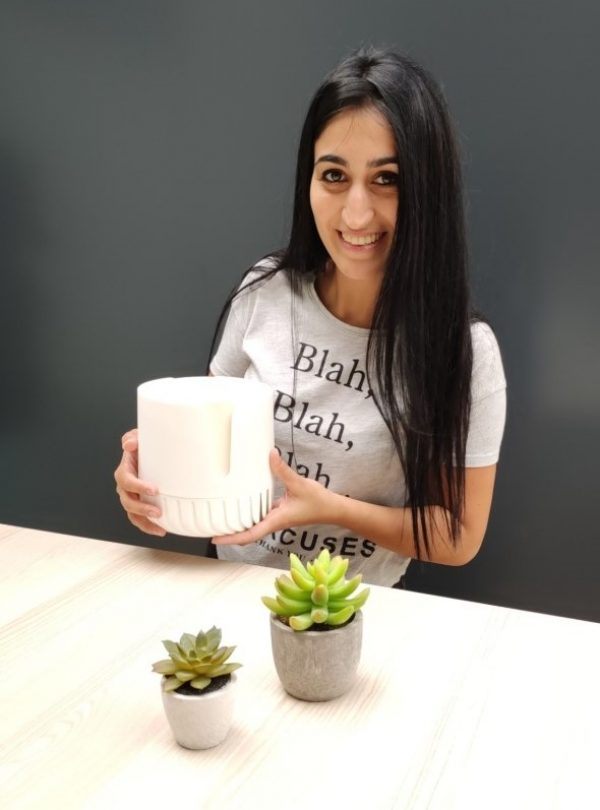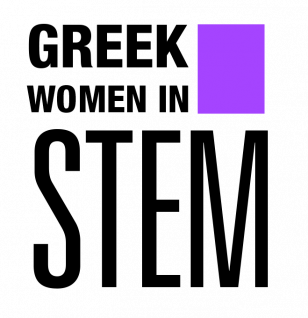Dr. Sotiria Tsochataridou is a Research and Product Manager for Smart Separations, a company that creates ceramic membranes and antiviral coatings. She got her M.Eng. degree in Chemical Engineering from the Aristotle University of Thessaloniki in 2013 and her PhD from Newcastle University, UK in 2019. She has worked on carbon dioxide permeation across dual-phase membranes which contributes to the fundamental research being conducted today on the mechanism of carbon dioxide separation from various gas streams. Sotiria formerly worked on automotive coatings at Loughborough University in the UK, attempting to secure industrial scale manufacture and commercialization. In 2020, she successfully launched the first ViraTeq coated product, Gino, an air sanitiser device that is based on a revolutionary low-maintenance and light-weight air filter technology which was fully funded on Kickstarter. Gino can destroy coronavirus and other airborne pathogens, helping to mitigate the impact of COVID-19 in society and national economy. Sotiria speaks to Greek Women in STEM about her research experience both in academia and industry, providing us with insight into such engineering roles.
Could you please give us a brief description of your job?
I work as a Research & Product Manager for Smart Separations. Smart Separations is a SME (small and medium-sized enterprise) that has created a new generation of antiviral coatings and ceramic membranes. These can be used wherever antiviral coatings or microfiltration are needed, such as in air purification, from transportation to healthcare and more. Part of my work at Smart Separations includes managing lab personnel and developing research plans for various products. I am also involved in the management of different products from concept through design, sample production, testing, forecast, cost, mass production and promotion.
What drew you to engineering, and particularly chemical engineering?
I have always loved chemistry and been good at Maths and Physics. Why not delve deeper into something you are good at but don’t fully understand? Also, I find solving issues that are not chemically oriented but rather day-to-day challenges that can involve reactor and control system design to be interesting. Chemical Engineers simply make things happen!
Why did you decide to pursue a Phd on CO2 separation and what is the impact of this particular project?
I have always been environmentally conscious, and this project was great for me. Carbon capture coupled with improved energy efficiency processes are identified as critical technologies enabling significant reduction of carbon dioxide (CO2) emissions while meeting the present world energy needs.
What are dual phase membranes?
Generally, membranes have emerged as a promising technology to mitigate anthropogenic greenhouse gases emissions and today they are commonly used for high-temperature carbon dioxide separation. Specifically, membranes provide selective permeation to carbon dioxide combining different reactions that occur on both sides of a single membrane and the diffusion of the ions produced from these reactions. Dual-phase membranes gather the best characteristics of different compounds aiming to achieve high permeabilities of a gas and at the same time maintaining high selectivity. Each phase of the dual-phase membrane transports different ions; one phase is used for the diffusion of carbonate ions (carbonates) and the other phase for the transport of oxygen ions (ceramic). Carbon dioxide reacts with oxygen ions from the ceramic phase to form a carbonate ion and the reversible reaction occurs on the opposite side of the membrane.
What is Gino?
Gino is a personal air sanitiser developed and commercialized by Smart Separations. The technology relies on an antimicrobial coating that is able to remove viruses, bacteria and fungi from the air. This innovative nano-coating exhibits broad-spectrum antimicrobial activity, including SARS-CoV-2, and has a high speed of action. Gino uses a ceramic filter technology which can be washed and then re-used. It is also USB powered making it easier to be used even on the go.
What influenced your decision to leave academia for a career in industry, and how easy was it for you to make that transition?
I left after finishing a postdoctoral contract at Loughborough University where I worked on a scale-up project with an industrial partner. I had enjoyed collaborating with industry scientists, and I was curious to find out more about how products are developed further from basic research. I also realised that translating basic research into impactful applications has lots of room for creativity and discovery; you may learn new things in a variety of settings, not only in academia. I am always looking for something new and I am willing to explore and learn different things and, for this reason, I did not think twice about taking on a new challenge.
What do you think are the fundamental differences in a researcher’s everyday life as well as in the way research is conducted?
At Smart Separations I had, and I still have, the opportunity to see what other people do in the organization, I am also able to move around, which allows me to figure out what I really want to do and what I am good at. I work daily with people with diverse expertise, including commercial, business and manufacturing. In a company, you can work on projects that take advantage of your specific skills and there is a lot of teamwork required. This is quite different from academia where I worked almost exclusively with people in my field. I would say the scientific side isn’t all that different depending on the type of company you work for; both academia and industry need to get the right results to solve a problem. However, academia is generally discovery focused and much of the conducted research is for the purpose of learning rather than for a specific application with immediate impact.
Is your workplace predominantly job environment mainly male-dominated and if so, how do you feel about it?
We now have a higher percentage of women working in the organisation overall, but there are fewer women in managerial roles. I truly believe that women in leadership positions are just as competent as their male counterparts. In my company, we really empower women and I’ve always felt valued at work. Within my first year of employment, I gained a managerial position. I think that the stereotypes are changing slowly but in some cases the unconscious bias plays a role in hiring and promotion decisions.
What skills should a woman hold in order to work in this field and what would you advise a younger woman who would like to pursue a career in this area?
There are a number of qualities that are vital in any industry but also applicable in my line of work. The ability to communicate effectively and be a good team player, having the motivation to take on new tasks as well as deliver high-quality work are all essential. Another crucial skill is accountability and responsibility, which includes not making assumptions, holding others accountable and following-up to confirm tasks have been completed, and that agreements have been kept.

Follow Dr. Tsochataridou’s work:
RELATED ARTICLES
CONTACT US
____________
greekwomeninstem@gmail.com
Do you have ideas, questions, comments or special requests?
Would you like to highlight your research project or nominate a researcher that you would like to learn more about?
Please write to our email or fill out the form and hit “send”. We will be happy to talk with you!
[contact-form-7 id=”44″ title=”Contact form 1″]
